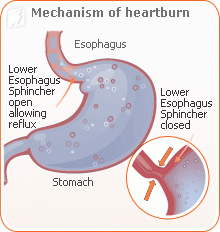
Feelings of burning tongue often starts out localized to the tongue, but the pain can spread onto the gums, lips, the inside of the cheeks and the back of the mouth or throat. There are a number of possible causes, and researchers have speculated everything from vitamin deficiencies to hormonal fluctuations. However, it is clear that there is an increase in women who suffer from burning tongue during the menopausal transition.
What Is a Burning Tongue Sensation?
Burning tongue disorder has long been associated with a variety of conditions such as menopause, psychological problems, nutritional deficiencies, and disorders of the mouth. Some researchers have suggested dysfunctional or damaged nerves are a possible cause. Still, the exact cause of burning tongue syndrome is often difficult to pin down.
As of yet, there is no definitive answer to this question. Burning tongue sensation (also known as burning mouth syndrome, scalded mouth syndrome, burning lips syndrome, glossodynia and stomatodynia) is a complicated and poorly understood condition. While the vast majority of people who suffer from the sensation are middle-aged younger people are sometimes affected as well.
Burning tongue sensations initially begin with the sensation of pain or burning in the mouth. This pain is usually felt lightly in the morning, but gradually escalates through the day until it reaches intolerable levels. The pain associated with burning tongue sensation can be constant or intermittent. It also gives things that touch the tongue a bitter, metallic taste.
Is Menopause the Only Known Cause of Burning Tongue Sensations?
Quick Fact:
There are a number of factors that could be responsible for a burning tongue sensation aside from menopause, including:

Psychological factors. Emotional disorders, particularly depression and anxiety are often associated with burning tongue syndrome. Remember - though such problems can cause a burning mouth, they may also be the result of it.
Allergies. The tongue burning can be due to allergies or reactions to foods, food flavorings, other food additives, fragrances, dyes or other substances.
Reflux of stomach acid. The sour tasting fluid that enters your mouth from your upper gastrointestinal tract can also be responsible for causing irritation and pain.
Burning Tongue Sensations as a Result of Menopause
Hormonal changes (as experienced during menopause) have been most closely associated with the burning sensation on the tongues of middle-aged women. It is the most common oral symptom related to menopause. Hormone changes have been known to alter the chemical composition of saliva. Luckily, when menopause is the cause, normal menopausal reliefs will help ease the syndrome.
How Do I Deal with Burning Tongue Sensations?

Some tips for eliminating burning tongue sensations include:
- Stop using mouthwash that contains alcohol.
- Refrain from drinking beverages with high acidity (fruit juices, coffee, soft drinks) plus alcohol.
- Abstain from tobacco use.
For burning tongue syndrome caused by menopause, there many alternative medicines that have been shown to stabilize hormone fluctuations and therefore the symptoms of menopause. These should have a preventative effect on burning tongue sensations.
For more information about combating burning tongue sensations click here.
Sources
- Epstein, Joel B.; Gorsky, Meir; Grushkamier, Miriam. "Burning Mouth Syndrome". American Family Physician. www.aafp.org.
- "Burning Mouth Syndrome". Associated Content. www.associatedcontent.com.
- "Burning Tongue". Atlantic Dental Group PC. www.atlantadentist.com.


